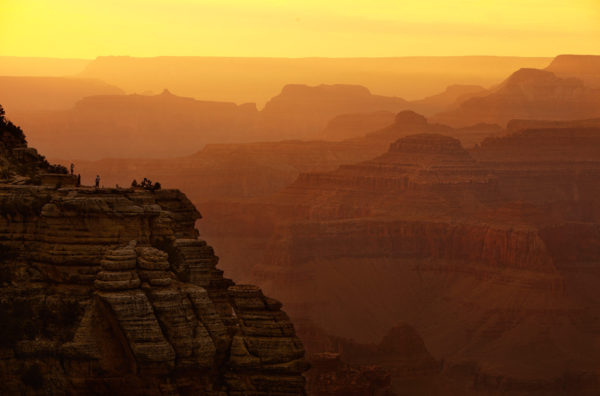Malthus And Machiavelli Rule Our Future, Not Gandhi And Kurzweil
Very few people understood what Thomas Malthus actually wrote. He opined that population always outpaces our ability to provide for it. A modern interpretation might extend that need from merely producing food to other areas both positive and negative, like making energy available and cleaning up after the pollution produced by industrial society.
This does not stop modernists from using his name as a synonym for any general theory of doom, as we see in this intriguing article from 2008:
[T]he current forecasts of energy and food disasters sound just like the ones made during the 1970s. Similar apocalyptic forecasts were made in the 1940s (in books like “Our Plundered Planetâ€) and in other eras by prophets following in Malthus’ tradition.
These prophets have always claimed to be seeing the big picture, but they ignore thousands of years of history during which the prices of natural resources fell and the wellbeing of humans improved. Yes, there were sometimes shortages; yes, there were plagues and wars and natural disasters. But while empires came and went, humans overcame problems and gradually improved their lot.
…Unlike Malthus, we can look around and see that we already have the energy and technology to feed a larger population than exists on Earth today. And we can look at Ray Kurzweil’s graphs showing exponential growth in computing power for more than a century, with no apparent end in sight.
Whom you would bet on: the Malthusians or the Singularitarians?
True, humanity has escaped doom before, but (1) not really: all civilizations have collapsed; and (2) we are now much bigger and more powerful, so “the bigger they come, the harder they fall” applies. Humanity dodged nuclear annihilation and the silly climate change style fantasies of the 1970s, maybe even was able to dodge food bomb round one, but how will it fare with 7.5bn people and declining energy reserves?
The singularity is a wanky fantasy sold to people who want to believe that history is very simple instead of the nuanced thing that it is with depth and breadth. And then there is the question of whether we want a singularity, since that will mean ecocide. On the contrary, if we reduce human land-use footprint we can have both nature and humanity:
Repurposing former pastures into native habitats and forests would alleviate climate change and bring back lost biodiversity, including larger herbivores such as buffalo, and predators such as wolves, all of which were previously pushed out or killed in order to keep cattle.
Imagine how much land we could reclaim by disposing of the rotted inner cities, pointless big box stores, roads to nowhere, government offices, nail salons, fast food joints, and every other form of human blight. With a world population of under one billion, ideally selected by quality, we could lead normal and prosperous lives without feeling like we are on our march to doom.
Malthus was brilliant in that he saw the inevitability of a crash; the timing is more difficult. Kurzweil and Gandhi, both Utopians, missed what Malthus and Machiavelli saw: life is nihilistic, with nature acting in a consistent manner like a machine, regardless of our emotions. Survival occurs when we regulate ourselves enough to be realistic and adapt to our environment instead of following our dreams and hopes.
Tags: Mohandas Karamchand Gandhi, niccolo machiavelli, ray kurzweil, thomas malthus










